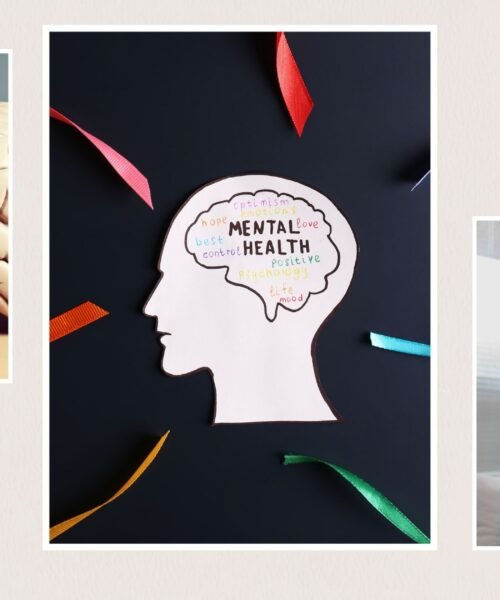Mobile Devices and Mental Health: Striking a Balance
In today’s fast-paced world, mobile devices have become an integral part of our daily lives. From staying connected with loved ones to accessing a wealth of information at our fingertips, these devices offer numerous benefits. However, their impact on mental health is a topic of growing concern. This article explores the relationship between mobile devices and mental health, highlighting both the positive and negative effects, and offers practical tips for striking a balance.
The Rise of Mobile Devices
Mobile technology has evolved rapidly over the past few decades. From the first bulky mobile phones to sleek smartphones, the advancements have been remarkable. According to recent statistics, there are over 6 billion smartphone users worldwide, and this number continues to grow. With such widespread usage, it’s essential to understand how these devices affect our mental well-being.
Positive Impacts of Mobile Devices on Mental Health
Mobile devices can have several positive impacts on mental health. They provide easy access to mental health resources, such as therapy apps and online support groups. Social connectivity is another significant benefit, allowing individuals to stay in touch with friends and family, which can reduce feelings of loneliness. Additionally, educational tools and apps can promote mental well-being by offering mindfulness exercises, stress management techniques, and more.
Negative Impacts of Mobile Devices on Mental Health
Despite the benefits, mobile devices can also negatively impact mental health. One of the most significant issues is addiction and dependency. Many people find it challenging to disconnect from their devices, leading to increased stress and anxiety. Sleep disturbances are another common problem, as the blue light emitted by screens can interfere with sleep patterns. Moreover, excessive mobile use has been linked to anxiety and depression, particularly among young people.
Understanding Mobile Device Addiction
Mobile device addiction is a growing concern. It is characterized by an inability to control the use of mobile devices, leading to negative consequences in daily life. Symptoms include constant checking of the phone, feeling anxious without it, and neglecting other activities. Causes of mobile device addiction can vary, including the need for social validation, boredom, and the instant gratification provided by apps and notifications. Real-life examples and case studies highlight the severity of this issue.
The Role of Social Media
Social media plays a significant role in the relationship between mobile devices and mental health. While it can enhance self-esteem by providing a platform for self-expression, it can also have detrimental effects. The pressure to maintain an online presence and the prevalence of cyberbullying can lead to decreased self-esteem and increased anxiety. It’s crucial to be aware of these risks and take steps to mitigate them.
Sleep and Mobile Devices
The use of mobile devices, especially before bedtime, can significantly affect sleep patterns. The blue light emitted by screens can suppress the production of melatonin, a hormone that regulates sleep. This can lead to difficulties falling asleep and poor sleep quality. To improve sleep hygiene, it’s recommended to limit screen time before bed, use blue light filters, and establish a relaxing bedtime routine.
Anxiety and Depression Linked to Mobile Use
Research has shown a correlation between excessive mobile use and increased levels of anxiety and depression. Personal stories and testimonials from individuals who have experienced these effects provide valuable insights. Coping strategies, such as setting boundaries, practicing mindfulness, and seeking professional help, can help manage these issues.
Balancing Mobile Device Use
Striking a balance between mobile device use and mental health is essential. Setting boundaries, such as designated screen-free times and places, can help reduce dependency. Mindfulness practices and digital detoxes can also promote a healthier relationship with technology. Developing healthy habits and routines, such as regular exercise and face-to-face interactions, can further support mental well-being.
The Role of Parents and Educators
Parents and educators play a crucial role in guiding children and teens in their use of mobile devices. Educational programs and initiatives can raise awareness about the potential risks and benefits. Parental controls and monitoring tools can help manage screen time and ensure safe usage. Encouraging open communication and setting a good example are also vital.
Mental Health Apps and Tools
There are numerous mental health apps and tools available that can support mental well-being. Popular apps include Headspace, Calm, and BetterHelp, which offer a range of services from meditation to online therapy. While these apps can be beneficial, it’s essential to be aware of their limitations and choose those that best suit individual needs. User reviews and ratings can provide valuable insights into their effectiveness.
Future Trends in Mobile Technology and Mental Health
The future of mobile technology and mental health is promising, with ongoing innovations aimed at improving mental well-being. Emerging trends include the development of AI-driven mental health apps, virtual reality therapy, and wearable devices that monitor mental health indicators. However, ethical considerations, such as data privacy and the potential for over-reliance on technology, must be addressed.
Conclusion
In conclusion, mobile devices have both positive and negative impacts on mental health. While they offer valuable resources and connectivity, they can also lead to addiction, sleep disturbances, and increased anxiety and depression. Striking a balance is crucial, and this can be achieved through setting boundaries, practicing mindfulness, and seeking support when needed. By being mindful of our mobile device usage, we can harness their benefits while protecting our mental well-being.
FAQs
- What are the signs of mobile device addiction?
- Signs include constant checking of the phone, feeling anxious without it, and neglecting other activities.
- How can I reduce my screen time?
- Set boundaries, designate screen-free times and places, and practice mindfulness and digital detoxes.
- Are there any benefits to using mobile devices for mental health?
- Yes, they provide access to mental health resources, social connectivity, and educational tools.
- What are some recommended mental health apps?
- Popular apps include Headspace, Calm, and BetterHelp.
- How can parents help their children manage mobile device use?
- Encourage open communication, set a good example, use parental controls, and monitor screen time.










